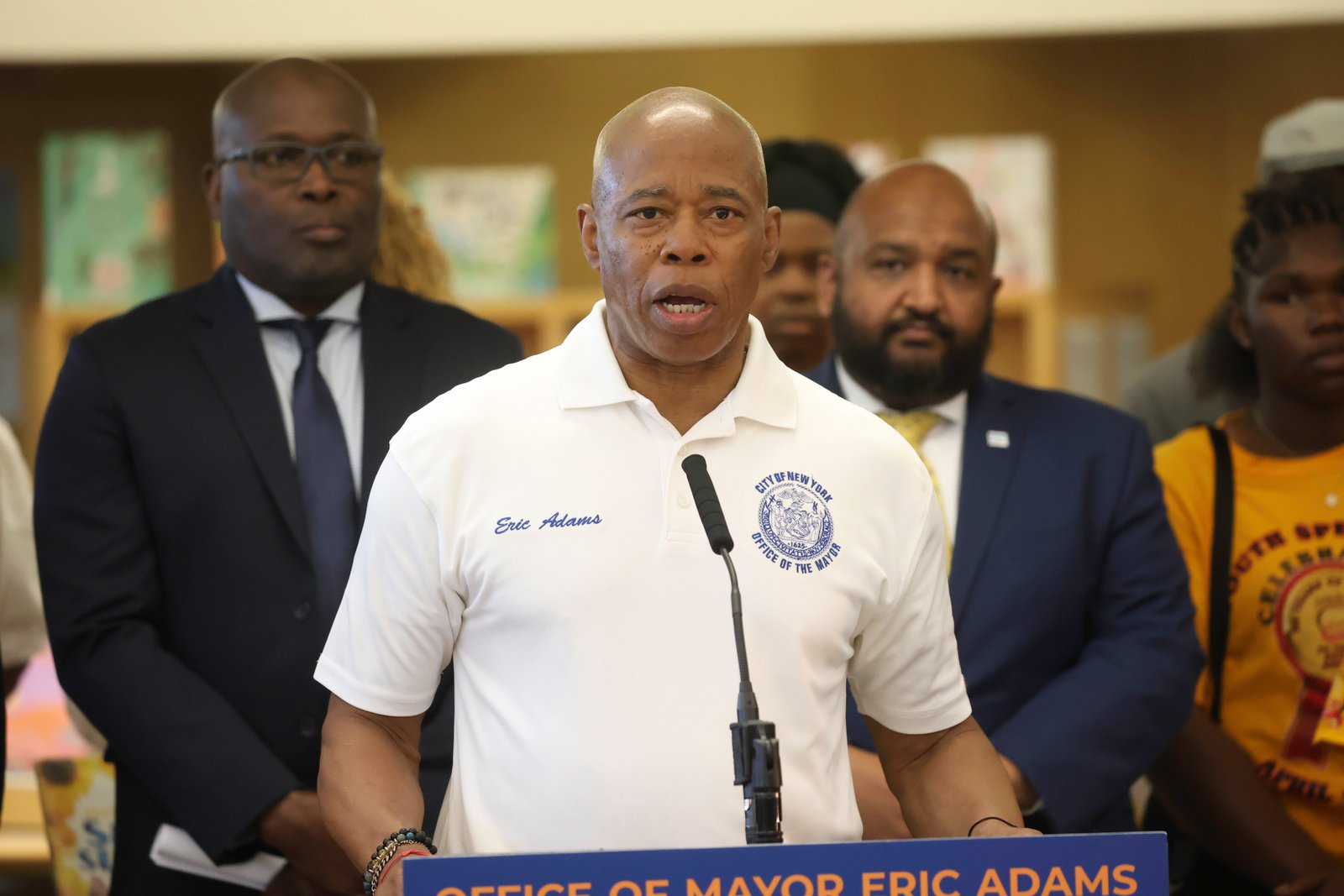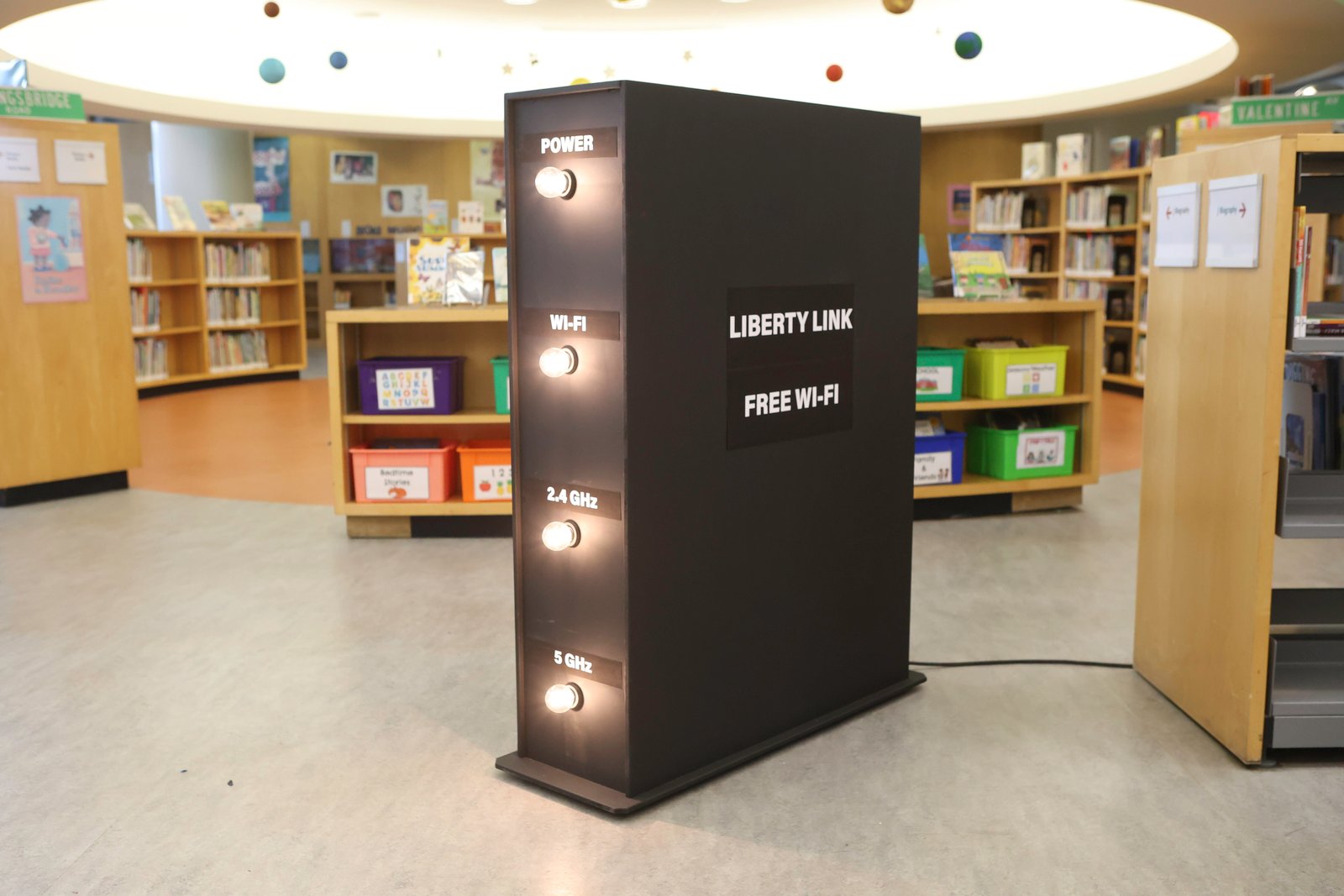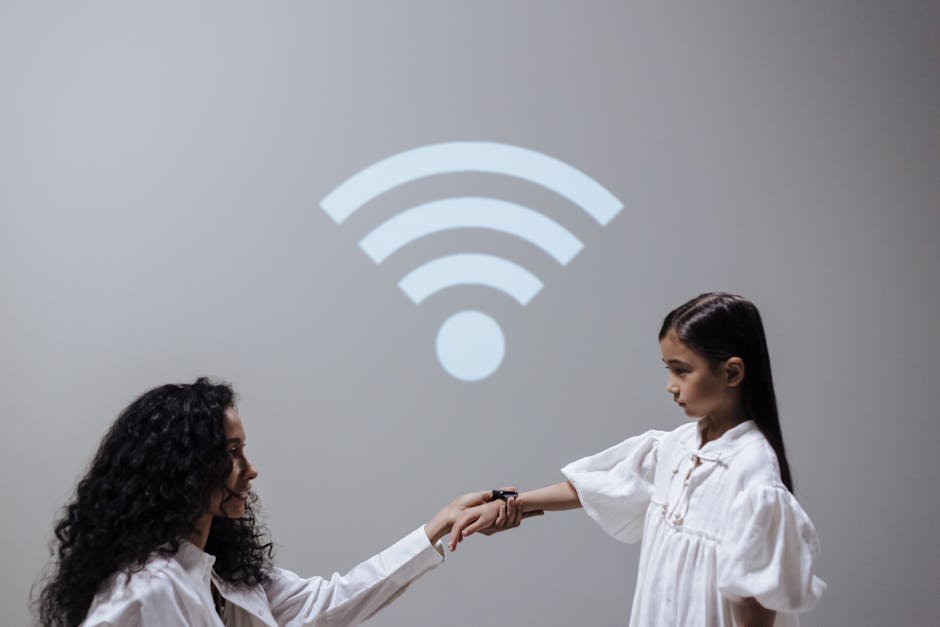Mayor Eric Adams is trying to make New York City more affordable with a new pilot program to bring internet to struggling families.
The three-year pilot program, named “Liberty Link,” is funded with $3.2 million in federal funds and will provide free or low-cost Wi-Fi to 35 affordable housing buildings, reaching 2,200 households in upper Manhattan and the Bronx, according to City Hall.
“As our cities become more and more automated, and more and more use artificial intelligence, the internet is no longer just a luxury, it’s a necessity,” Adams said from the Bronx Library Center Wednesday.

Liberty Link follows the Adams administration’s “Big Apple Connect” program that began granting free broadband access in certain neighborhoods in 2022.
“‘Liberty Link’ will build on the success of ‘Big Apple Connect’ and give over 2,000 more households the free internet they need,” Adams said.
“We will help more working-class New Yorkers save on the cost of this vital service, put money back into their pockets, and deliver, once again, on our commitment to create a more affordable city for working-class families.”
The new initiative, which will use funds from the CARES Act, will be run by New York Public Libraries, along with the city’s Housing and Preservation Department, which provides free one-on-one tech help based out of Big Apple book-lenders.
“We heard from tenants in upper Manhattan and the Bronx and the message was clear. Many were struggling with spotty service, rising costs or had no reliable access at all — and we knew we had to act,” said Ahmed Tigani, acting commissioner of HPD.
Garfield Swaby, vice president of technologies at NYPL, said some New Yorkers cannot participate in society because they live in a “digital dessert.”

“In today’s digital world internet access is increasingly essential to fully participate in society, from completing homework to logging onto healthcare portals to applying for jobs,” Swaby said.
“The internet has become a necessary tool in daily life, and yet the Bronx is riddled with digital desserts,” he added.
When Big Apple Connect was first launched, the service reached over 90,000 households in 135 NYCHA buildings, according to City Hall.
The rollout was deemed successful, saving families an average of about $1,700 per year.
City Hall said it has since expanded the program to 150,000 households and 330,000 New Yorkers across 220 NYCHA sites throughout the city.


